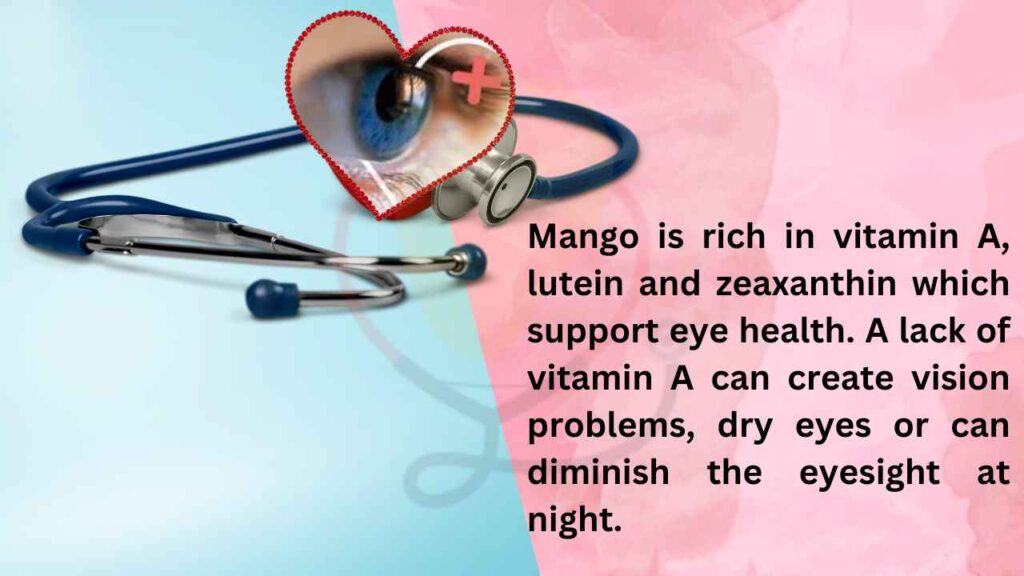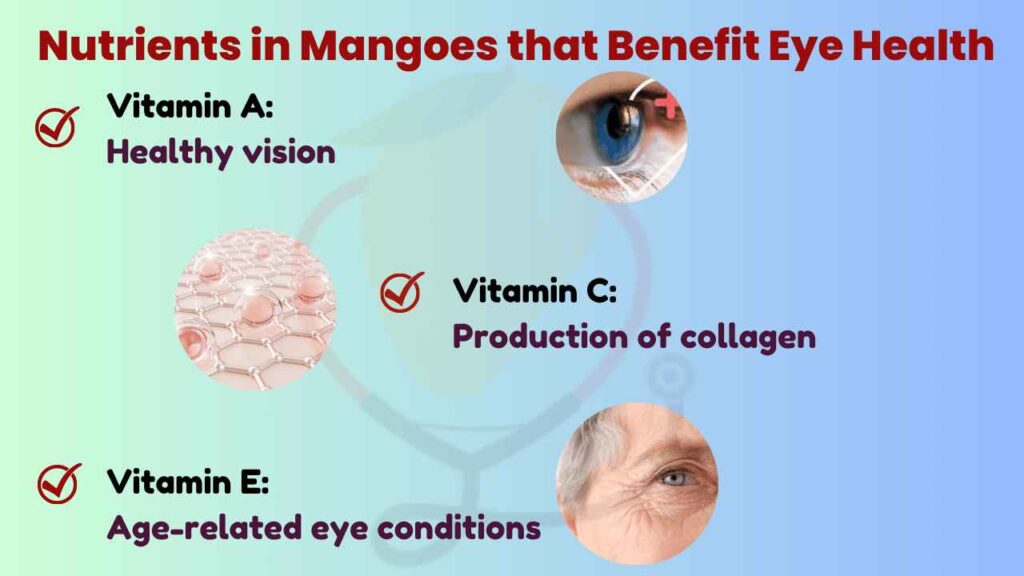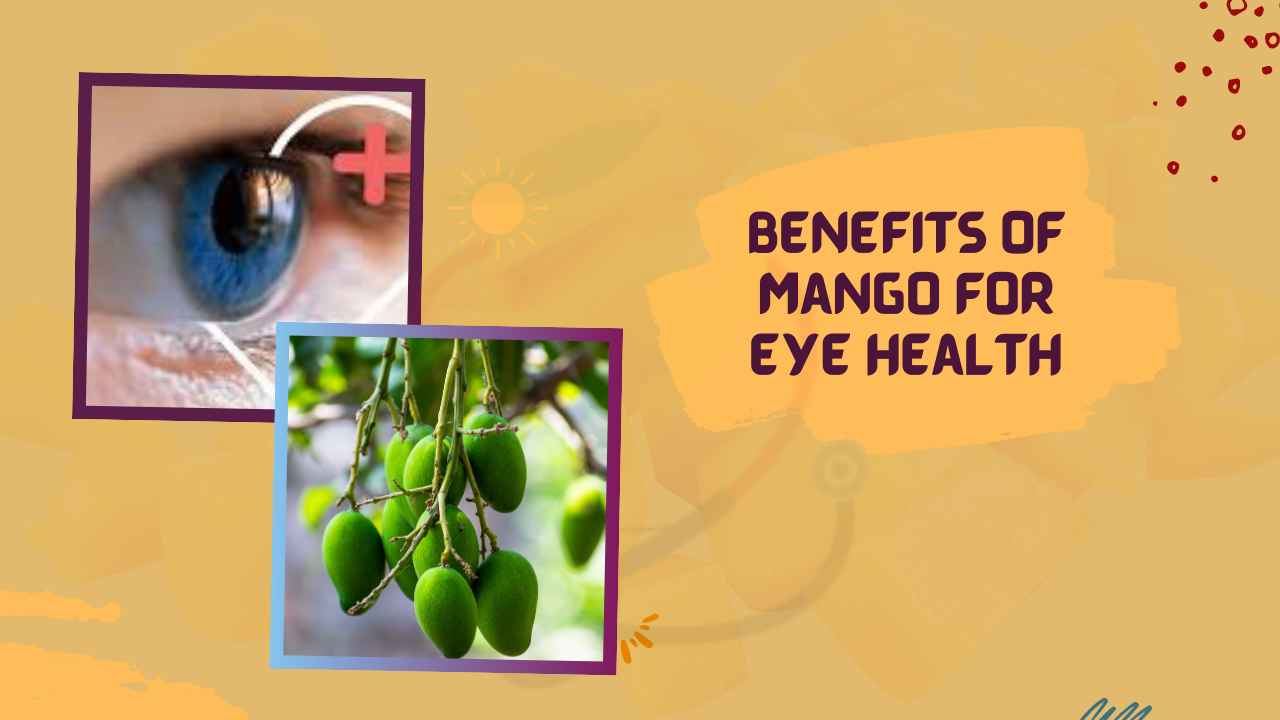Mango is a fruit that is beneficial for eye health due to its content of lutein, zeaxanthin, and vitamin A.
Because of these nutrients Mango Support Eye Health. These nutrients play a crucial role in supporting and maintaining good vision.
Lutein and zeaxanthin have the potential to protect the eyes from harmful sun exposure, while an inadequate supply of vitamin A lead to various vision-related issues. [1]
These nutrients, primarily found in the central region of the retina called the macula; act as a natural shield against excessive light and offer protection from harmful blue light. [2]

In this article, we will explore how mango Mango Support Eye Health and the nutrients responsible for these benefits.
Mango Support Eye Health
Mangoes are a rich source of beneficial nutrients that support eye health. Here are some of the key nutrients found in mango and because of these nutrients mango support eye health.[3]

1: Vitamin A
Mangoes are a rich source of vitamin A, which is essential for eye health.
Vitamin A plays a vital role in maintaining healthy vision, particularly in low light conditions. It is also crucial for the health of the cornea, the outer layer of the eye. [4]
2: Vitamin C
Mangoes are also an excellent source of vitamin C, a powerful antioxidant that protects the eyes from damage caused by free radicals.
Vitamin C also supports the production of collagen, a protein that is essential for the health of the eye’s tissues. [5]
3: Vitamin E
Vitamin E is another antioxidant found in mangoes that may help reduce the risk of age-related eye conditions. [6]
This vitamin protects the eye’s cells from damage caused by free radicals and supports the immune system.
4: Zeaxanthin and Lutein
Mangoes also contain zeaxanthin and lutein, two essential nutrients that are beneficial for eye health.
These nutrients protect the eye’s cells from damage caused by blue light and support the health of the macula, the part of the eye responsible for central vision. [5, 6]
Macular Degeneration
Macular degeneration is a condition that affects the macula, the part of the eye responsible for central vision.
This condition is a leading cause of vision loss in people over the age of 50. Studies have shown that consuming foods rich in zeaxanthin and lutein, such as mangoes, may help reduce the risk of macular degeneration. [8]
Mangoes are a delicious and nutritious fruit that can offer many health benefits, including mango support eye health.
The vitamins, minerals, and antioxidants found in mangoes make them a valuable addition to any diet.
By incorporating mangoes into your meals, you enjoy their many health benefits while also satisfying your taste buds.
FAQs
Can mangoes help prevent cataracts?
Mangoes contain a high level of vitamin A, which is essential for eye health. Vitamin A helps to prevent night blindness, cataracts, and other eye disorders. Consuming mangoes regularly may help to support eye health and prevent cataracts.
How many mangoes should I eat per day?
The recommended serving size for mangoes is about one cup or 165 grams. Eating one to two servings of mangoes per day is a healthy way to incorporate this fruit into your diet without overdoing it.
Are there any side effects of consuming too many mangoes?
While mangoes are generally safe to consume, consuming too many mangoes can cause digestive upset, such as diarrhea or bloating.
Can mangoes help improve skin health?
Yes, mangoes may help to improve skin health due to their high content of vitamin A and antioxidants.
Can people with diabetes consume mangoes?
Mangoes are relatively high in sugar and should be consumed in moderation by people with diabetes. It is important for individuals with diabetes to monitor their blood sugar levels and to consult with their healthcare provider before adding mangoes to their diet.

